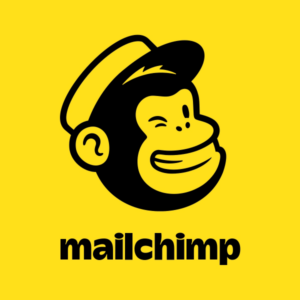In the fast-paced world of digital marketing, choosing the right email marketing tool can make all the difference.
With so many options available, finding a solution that balances features, pricing, and user-friendliness is crucial.
In this comparison, we’ll look at some of the top email marketing tools of 2026, including their key features, pricing, and usability.
We’ll also suggest the best option based on different needs.
Our Best Pick for You
But first, let’s cut to the chase: Mailchimp stands out as the best overall tool for its blend of affordability, ease of use, and comprehensive features.
Now, let’s dive into the details.
In-Depth Analysis
Mailchimp:

- Pros: Offers a robust free plan with all the essential features, making it ideal for beginners and small businesses. Its AI-powered tools simplify content creation, and its intuitive interface ensures a smooth user experience.
- Cons: Limited advanced features in the free plan; some users may find the upgrade costs steep as their needs grow.
- Conclusion: Best for users looking for a user-friendly platform with strong performance tracking and scalability as their business grows.
Constant Contact:

- Pros: Excellent for small businesses that need a reliable tool with strong support and easy-to-use templates. Offers great social media integration.
- Cons: More expensive compared to some other options when scaling up.
- Conclusion: Perfect for small businesses that value simplicity and reliable customer support.
HubSpot:

- Pros: Provides a comprehensive suite of marketing tools, including CRM, making it ideal for businesses that need an all-in-one solution.
- Cons: The learning curve can be steep for beginners, and the cost can add up quickly with additional features.
- Conclusion: Best for businesses looking for a fully integrated marketing platform with advanced automation and segmentation capabilities.
Benchmark Email:

- Pros: Known for its ease of use and responsive design features, making it a good option for teams that need to quickly create visually appealing emails.
- Cons: Limited advanced features in the basic plans.
- Conclusion: Great for marketers who prioritize simplicity and design flexibility.
Freshworks Freshmarketer:

- Pros: Strong integration capabilities with other marketing tools and CRM systems, making it versatile for different marketing strategies.
- Cons: May require additional tools or add-ons for full functionality, which can increase the overall cost.
- Conclusion: Best for businesses that need a multi-channel marketing platform with deep integration options.
Comparison Table: Top Email Marketing Tools
| Tool | Best For | Starting Price | Free Plan | A/B Testing | Key Features | Ease of Use | Affiliate Link |
|---|---|---|---|---|---|---|---|
| Mailchimp | Beginners, SMBs | $13/month | Yes | Yes | AI content generation, 100k contacts, analytics | 9.4/10 | Check Now |
| Constant Contact | Small Businesses | $9.99/month | 60 days trial | Yes | Social media integration, easy templates | 9.5/10 | Check Now |
| HubSpot | Integrated Marketing | $15/month | Yes | Yes | CRM integration, advanced segmentation | 9.2/10 | Check Now |
| Benchmark Email | Ease of Use | $13/month | Yes | Yes | Responsive design, high contact limit | 9.2/10 | Check Now |
| Freshworks Freshmarketer | Marketing Integrations | $15/month | 21-day trial | Yes | Multi-channel marketing, CRM integration | 9.2/10 | Check Now |
Final Verdict
If you’re looking for a tool that’s beginner-friendly, scalable and offers a comprehensive set of features, Mailchimp is your best bet. For small businesses that need a simple yet powerful tool, Constant Contact is a solid choice.
However, if you need a fully integrated marketing platform, HubSpot might be worth the investment.
Each of these tools offers a unique set of features, so the best choice ultimately depends on your specific needs and budget.

